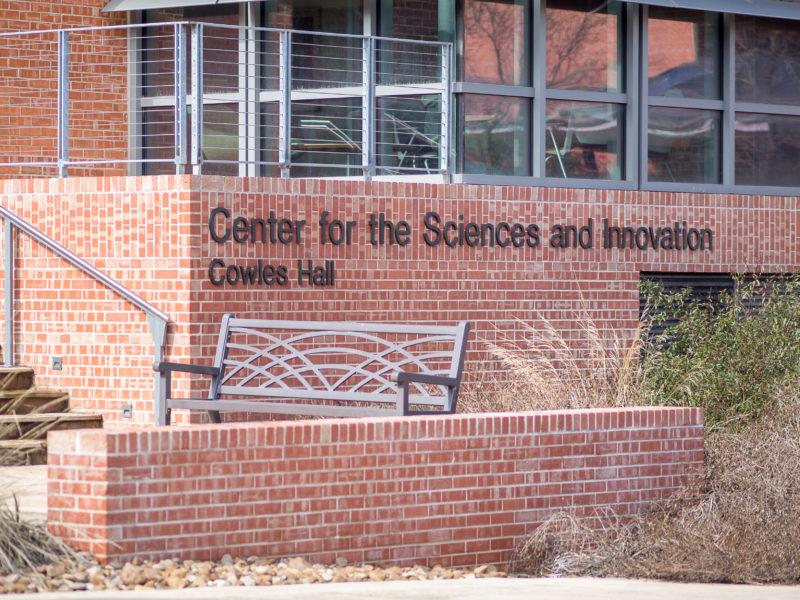Emergencies like fires and shootings can happen at a moment’s notice, but the Trinity community, particularly students, are equipped with resources and tools to help them to smoothly manage crisis situations. Drills have been organized for various situations that may endanger members of the Trinity community in hopes that they’ll learn about proper reactions in case they find themselves in hazardous predicaments.
One student endured an emergency situation and found herself using these resources earlier this month when she landed at the Fort Lauderdale airport right as the Jan. 6 shooting began.
“I listened to the people in charge. When the shooting started, the air marshals, TSA agents and even pilots all sprung into action. They tried to keep everyone calm and safe,” said Caitlin Heller, a senior political science major. “The air marshal and pilot took control and locked us safely inside. After that, they kept us up to date with the news as they received it. It was very reassuring how calm and collected all of the employees were, and it helped me stay calm when things were scary.”
The passengers remained inside the plane until further notice and were kept safe thanks to the prompt actions of the air marshal and pilot. Heller believes that Trinity has definitely taught her how to act in a way that allows her to stay safe when all variations of emergency situations arise.
“I think Trinity does the same thing during moments of crisis. Employees really work to make sure the community is safe. They keep the student body well-informed with the Trinity Alert System and make sure that we are all in safe places. Knowing what’s happening is so important in these kinds of scary situations,” Heller said.
Trinity gives its students, staff and faculty valuable tools and resources that they can use to learn more about safety, self-defense and what they can do when any type of emergency may come up. One such resource available to all students is the Rape Aggression Defense (RAD) gym class, which teaches students who enroll in the course about various self-defense techniques in a collaborative group setting.
“I learned self-defense moves and learned to be, in general, more aware of my surroundings and how to still go out and have fun and be a college student while staying safe and, most importantly, knowing what to do in a situation and remain calm and focused,” said Marina Schweitzer, a sophomore communication major.
Schweitzer took the class during her first year at Trinity and learned a great deal about both self defense and how to stay safe on campus in all types of emergencies.
“The campus police are very helpful, and there is a safety app that I learned about in the class. If trouble arises the app will send your location for help, which is really convenient and useful,” Schweitzer said.
The app Schweitzer is referring to is Elerts, which students can download for free. It allows them to report suspicious activity on campus by taking photos and sending TUPD the approximate locations of the suspicious activity. Students walking at night can hold down a button on the app and, if they sense danger, they can release the button, which alerts TUPD about the situation and allows them to respond to the area.
“I feel more empowered and confident because I know how to defend myself now. This class is a great opportunity for women to learn important life skills for defense and safety in any kind of unpredictable situation,” Schweitzer said.
Some students, faculty and staff members recently had to deal with an emergency situation on the Trinity campus. Shortly before classes recommenced this month, there was a fire in the Center for the Sciences & Innovation that was thought at first to involve hazardous materials, though eventually, it turned out not to be related to these potentially dangerous materials. The situation was alarming and unstable to those who were on campus as the hazardous event unfolded.
“Until we could find out what was going on in the lab, we had the fire department, hazardous material team and even emergency responders taking a slow approach to it because they didn’t know if it involved any potentially dangerous chemicals,” said Leslie Bleamaster, the science facilities manager at CSI.
Bleamaster noticed during some emergency situations that sometimes students were not paying attention to what was going on around them, especially in stimulations and emergencies during recent months.
“I think, first and foremost, we should treat every emergency, alarm and evacuation like it’s a real situation. We’ve had quite a few kinds of tests and exercises recently and I think there is a tendency for another alarm to go off and for them to treat it as just another drill,” Bleamaster said.
In order to keep these unpredictable and hazardous situations to a minimum, CSI has instituted a buddy system that helps to ensure that all students and faculty members stay safe while working and studying in the labs.
“In CSI, you’re really not supposed to be working in a lab after hours by yourself. No matter what time you’re working there, you should always be sure that you are wearing your protective gear and doing everything carefully because you just never know what might go wrong,” Bleamaster said.
Students should always pay attention when drills are going on around campus and listen to authorities, who can help them to stay safe. When drills are going on, students should also be sure to listen to the advice that is supplied in order to guarantee their safety should they find themselves in actual danger. To ensure even greater individual safety, students should make sure they are on the TrinAlert system and install the Elerts app on their phones for the promised assistance of TUPD during moments of danger.







